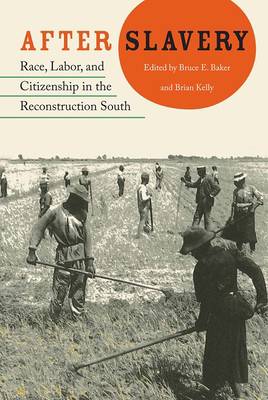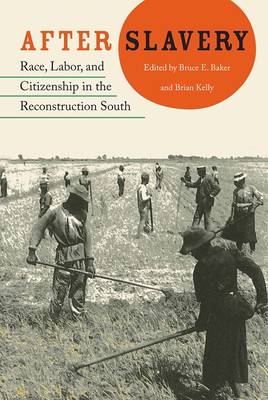
- Retrait gratuit dans votre magasin Club
- 7.000.000 titres dans notre catalogue
- Payer en toute sécurité
- Toujours un magasin près de chez vous
- Retrait gratuit dans votre magasin Club
- 7.000.0000 titres dans notre catalogue
- Payer en toute sécurité
- Toujours un magasin près de chez vous
After Slavery
Race, Labor, and Citizenship in the Reconstruction South
Description
"Is there really anything new to say about Reconstruction? The excellent contributions to this volume make it clear that the answer is a resounding yes. Collectively these essays allow us to rethink the meanings of state and citizenship in the Reconstruction South, a deeply necessary task and a laudable advance on the existing historiography."--Alex Lichtenstein, Indiana University
Freedom for African Americans is often assumed to have been granted and fully realized when Abraham Lincoln issued the Emancipation Proclamation. In reality, the meaning of freedom was vigorously, often lethally, contested in the aftermath of the Civil War. After Slavery moves beyond broad generalizations concerning black life during Reconstruction in order to offer a well-rounded portrait of the era.
Topics include urban unrest in New Orleans and Wilmington, North Carolina, loyalty among former slave owners and slaves in Mississippi, armed insurrection along the Georgia coast, and racial violence throughout the region.Spécifications
Parties prenantes
- Editeur:
Contenu
- Nombre de pages :
- 278
- Langue:
- Anglais
- Collection :
Caractéristiques
- EAN:
- 9780813060972
- Date de parution :
- 21-10-14
- Format:
- Livre broché
- Format numérique:
- Trade paperback (VS)
- Dimensions :
- 156 mm x 234 mm
- Poids :
- 430 g

Les avis
Nous publions uniquement les avis qui respectent les conditions requises. Consultez nos conditions pour les avis.





